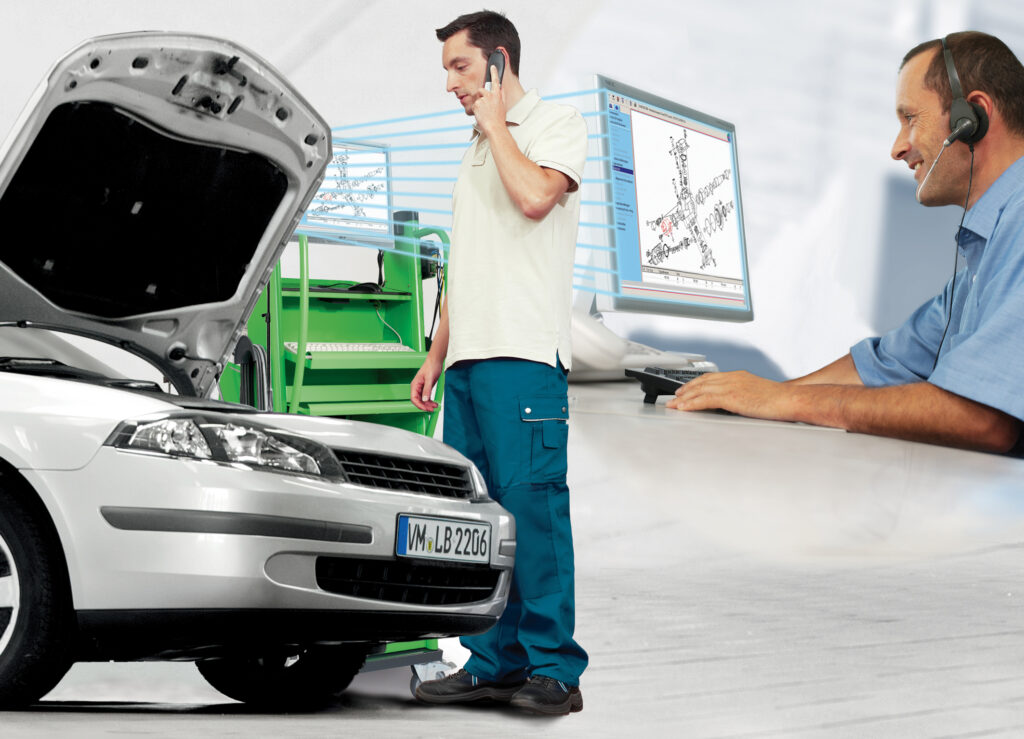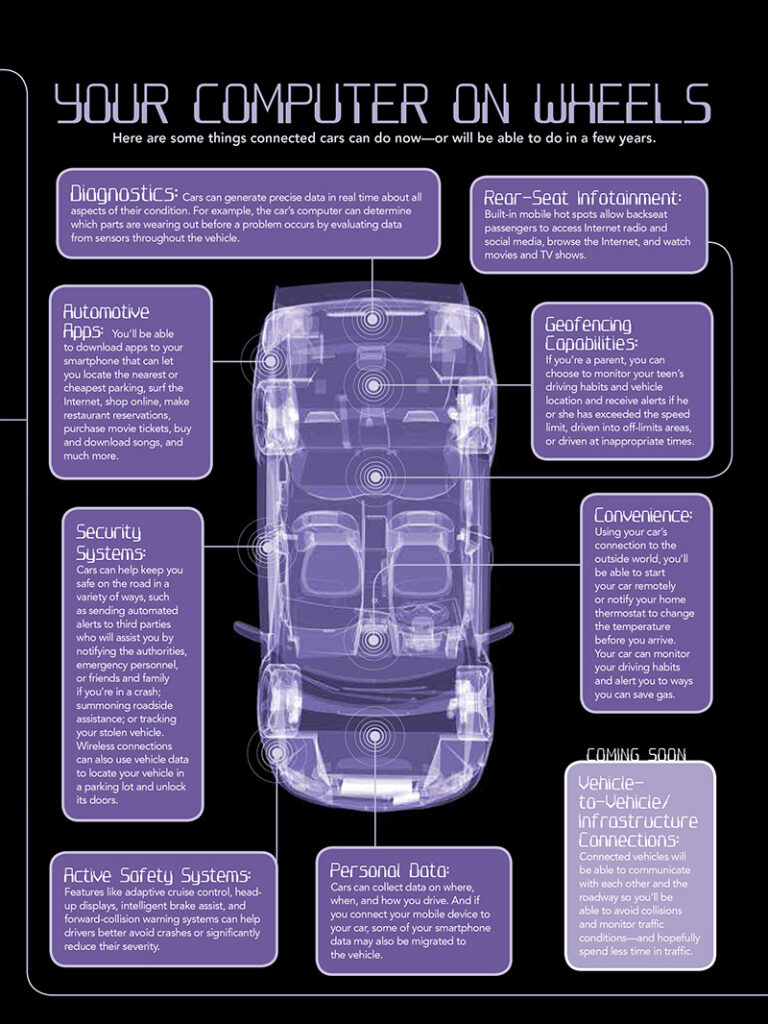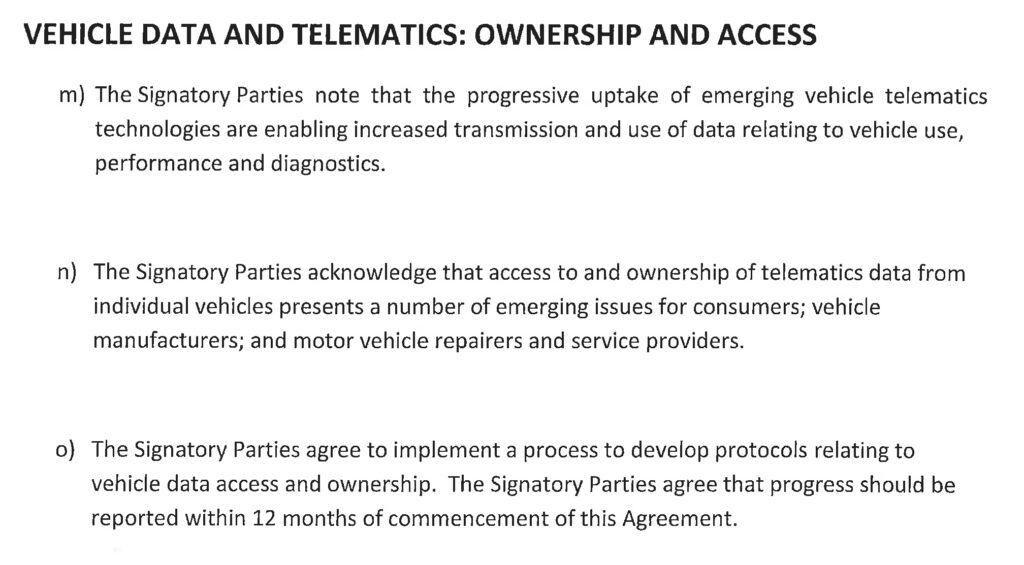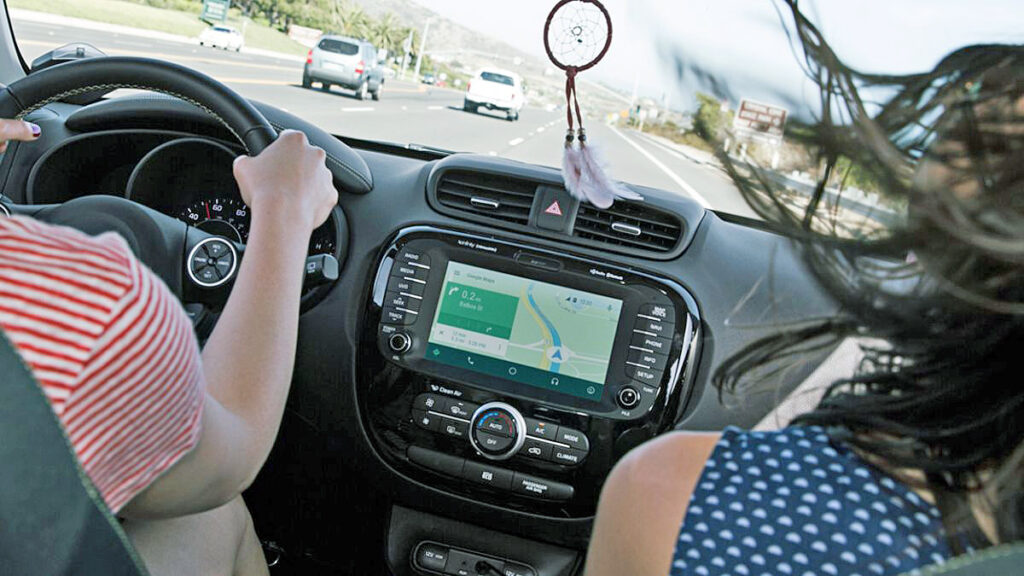Who owns vehicle telematics data?
- PostedPublished 6 April 2015
Who owns the data generated by modern ‘connected’ vehicles in their day-to-day running and who should have access to it?

What are the anti-competitive, privacy and civil rights implications of vehicles that can store and transmit data on location, usage and countless other factors as well as technical and diagnostic information?
These questions represent a twist in the tale of Australia’s journey toward the information sharing agreement, signed at the end of last year, and is hoped to grant independent workshops access to official repair information and tools that will enable them to compete on a level playing field with franchised dealers.
At the moment, anyone with a scan tool or even an OBD II port adapter and a smartphone app can access and download diagnostic, usage and other data from a vehicle.
But in this age of the telematics-enabled, internet-connected vehicle, a constant stream of data can be exchanged between a vehicle and its manufacturer or the dealership that sold it.
There is a concern that manufacturers and dealerships could be automatically alerted of faults, provided with a free opportunity to contact the vehicle owner and potentially make a service-related sale that might have otherwise gone to the customer’s preferred independent workshop.
What if car manufacturers all decided the OBD II port was obsolete and all contact with a vehicle’s diagnostic system could be done online? Where would that leave independent workshops?
This isn’t as far-fetched as it sounds. Did you know that in Europe, all vehicles must now come with a built-in SIM card and mobile connection so emergency services can be automatically summoned in the event of a serious crash?
It’s an initiative that will doubtless save lives, and telematics generally has many convenience benefits such as providing drivers with useful internet services on the move, such as real-time traffic congestion, road closure, weather or fuel price information.
But – and it’s a big but – you have probably been followed around the internet by creepy adverts for products you thought about buying and researched online several weeks ago.

If your car is constantly transmitting your location and driving style to someone, that information could also be used to create a profile of you for marketing purposes. Everyone knows this is how Facebook makes its money and how valuable such data is to marketing agencies.
The good news is that Australia has a world-leading position on the matter because a commitment to consider these issues is written into the Agreement on Access to Service and Repair Information for Motor Vehicles signed on December 15 2014.
Action from motoring and aftermarket organisations in North America and Europe – plus the Australian Automotive Aftermarket Association and Australian Automobile Association – is also forcing vehicle manufacturers to acknowledge and look into concerns about the implications of ‘connected cars’ becoming the norm, which is expected to happen in the next decade or so.
Ideas about international data usage protocols and legal frameworks are also being discussed, but something needs to happen quickly as technology is rapidly filtering down from luxury and premium vehicles to the volume sector.
The good news is, as AAAA executive director Stuart Charity put it to SightGlass News, ‘governments will be keen to prevent a monopolistic situation and consumers will not want to be locked into something with no choice’.
But consumers will require education about data sharing and their rights to ensure they delve into vehicle data sharing option screens, especially as few go beyond choosing their favourite radio station presets or pairing their smartphone.
With the amount of in-depth electronic personalisation options available on modern vehicles – from suspension settings to interior lighting colour and everything in between – it is not beyond the realms of possibility that consumers could program in their preferred workshop to receive data from their vehicle, or opt-out of data sharing features completely.
An ideal outcome would also be that no default settings are installed, preventing the manufacturer or selling dealership automatically receiving data, and that the sharing of data could be deactivated completely by the consumer.
On the Campaign Trail
Consumers have to be aware they own the data generated by their vehicle: a message encapsulated in the title of a North American campaign launched by a coalition of aftermarket associations and motoring clubs called ‘Your Car, Your Data’ and an Australian equivalent from the AAA called ‘My Car My Data’.

The AAA says ‘consumers should have the right to own and control the use of data relating to the performance, operation and security of their vehicle’.
It is estimated that one in five new cars sold in the US last year was connected and that by 2025 all new cars sold will be connected.
‘Developments in vehicle technology, such as telematics, should not negatively impact on a motorist’s choice of repairer, or their ability to manage their personal information and data that is generated by a vehicle,’ says the AAA.
In the US a ‘Telematics Task Force’ has been established and is working with the Society of Automotive Engineering (SAE) and the International Standards Organisation (ISO) to create guiding standards for the application of telematics technology by both vehicle manufacturers and the aftermarket.
‘Right now, automakers can collect your personal information including your exact location, car speed, braking and acceleration information, radio usage, phone use, and even how many people are in the car,’ reads the Your Car, Your Data website.

‘Improper access to certain vehicle systems can create serious public safety issues as well as jeopardise the privacy of the car owner. For these and many other reasons, the governance of telematics application development is a serious issue that requires a clear set of standards.’
Another Twist
While some organisations are telling vehicle manufacturers to keep their hands off consumers’ vehicle data, vehicle manufacturers including Mercedes-Benz parent company Daimler and Volkswagen Group are telling third-party telematics providers like Google to keep their hands off too.

Google’s Android Auto system, unveiled last June and now being integrated to new cars, enables drivers to replicate their smartphone’s functionality through a vehicle’s dashboard touch-screen.
This and the similar CarPlay system from Apple have been welcomed by vehicle manufacturers as they save the trouble and expense of integrating expensive technology and software into their products, only for long development lead-times to render it obsolete by the time of launch.
But at the Handelsblatt Automotive Summit in Munich last November, Daimler chairman Dieter Zetsche voiced concerns about the potential for companies like Google to gather vehicle data for commercial gain.
“It’s at that point where a conflict with Google seems pre-programmed,” he said. “That’s where we need to negotiate.”
Dr Zetsche added that there was the potential for vehicle manufacturers to become “third parties” and that vehicle data should be stored and processed on a separate and secure system.
Volkswagen CEO Martin Winterkorn agreed there was a conflict and wanted to prevent Google from accessing a vehicle’s data.
“We seek connection to Google’s data systems but we still want to be the masters of our own cars,” he said.
- CategoriesIn SightGlass
- TagsRegulatory, SightGlass News Issue 1

